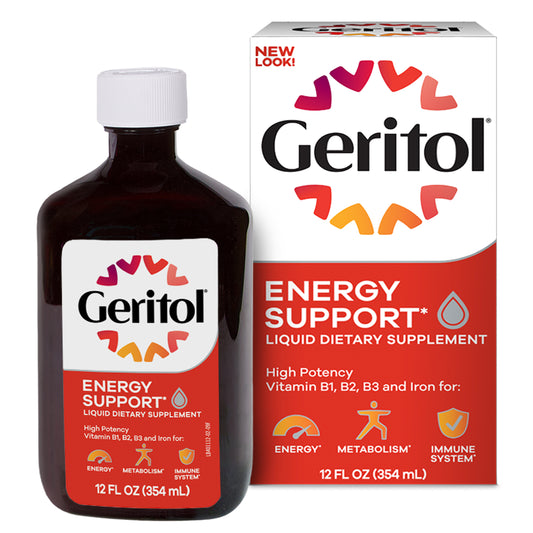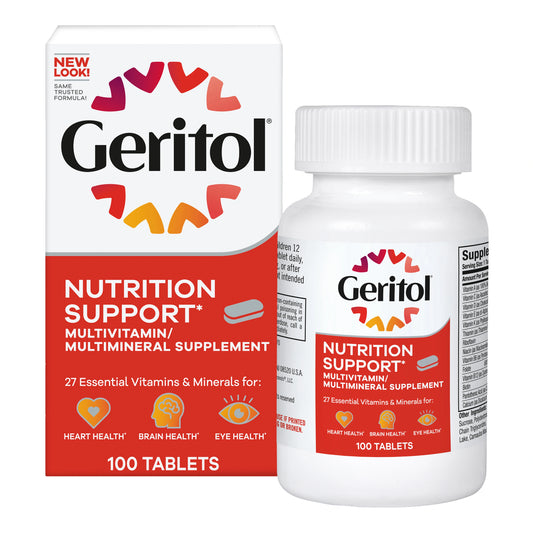Vitamins and minerals are compounds that are vital for all processes within the body. Like a team, they work with several other nutrients to help the body grow, develop and function properly. Vitamins help regulate processes within the body, typically as coenzymes, or partners to enzymes.
LUCKY 13
There are thirteen vitamins: four are fat soluble and therefore stored in the body’s fat, and nine are water-soluble. Water-soluble vitamins are used soon after consumption and any remaining vitamins are excreted in urine (with the exception of vitamin B12, a water-soluble vitamin stored in the liver).
Like vitamins, minerals also have numerous functions in the body. Minerals make the structure of many parts of the body including nails, teeth and bone. Minerals also help regulate heartbeat, make hormones and trigger enzymatic reactions in the body.
SOURCES OF VITAMINS AND MINERALS
Though a varied diet rich in fruits, vegetables, grains, lentils, meats, fish, nuts and fortified dairy can supply many of the vitamins and minerals necessary for health, there are certain vitamins and minerals that many people fall short on. Read more about what Foods Contain Vitamins and Minerals >
PLAYING HARD TO GET
For instance, copper is found in few foods in any significant amount. Magnesium is in many foods, but is often in small amounts, which may explain why many people don’t consume enough of this mineral. Also, vitamin D is found naturally in very few foods. And though some fortified nutrition bars and drinks can help boost one’s intake, vitamin D deficiency and insufficiency are prevalent in the United States.
In addition to consuming a diet composed primarily of nutrient-rich foods (foods that contain vitamins, minerals and antioxidants), taking a multivitamin/mineral supplement can increase nutrient intake helping people meet recommended amounts of vitamins and minerals.
This may be especially important for individuals who cannot meet their nutrient needs through food alone because:
- They are on a reduced calorie diet (fewer calories means fewer chances to consume nutrients)
- They have a poor appetite
- They cut out certain food groups or do not consume a wide variety of foods (more variety means more opportunities to consume each nutrient).
Specific groups of individuals may benefit from certain nutrients found in multivitamin/mineral supplements. These include:
- Women who are menstruating
- Women who may become pregnant
- Pregnant women
- Postmenopausal women
- Adults over 50 years old
- Adolescents at risk of nutritional deficiency
LOOK FOR 100% DAILY VALUE
There are several multivitamin/mineral supplements on the market and each one includes a different amount of vitamins, minerals and sometimes other ingredients as well. No single multivitamin/mineral tablet or pill contains all of the vitamins and minerals in recommended amounts. However, a well-balanced multivitamin/mineral contains 100% Daily Value (DV) of most vitamins and some minerals such as copper and zinc.
Some other minerals, including calcium and magnesium, are very bulky in size and therefore 100% of the DV cannot fit into a tablet that can be swallowed. The % Daily Value is based on a set of four recommended intakes collectively called the Dietary Reference Intakes (DRIs).
STAGE OF LIFE MATTERS
In addition to looking for a multivitamin/mineral that contains approximately 100% of the DV of most vitamins and minerals, it is a good idea to choose one tailored for age, gender and stage of life (menopause for instance).
Multivitamin/mineral supplements should be taken with a meal because most vitamins and minerals are better absorbed with food. However, many medications should not be taken within 1 to 2 hours of a vitamin or mineral supplement. In particular, the vitamin K in a multivitamin/mineral can interfere with the action of the blood thinning medication warfarin (Coumadin®) regardless of the time of day it is consumed.
The 2010 Dietary Guidelines for Americans specifies that nutrients should come mainly from food though dietary supplements may be beneficial for those who need to increase intake of one or more vitamins or minerals. And therefore, a multivitamin should be used as an adjunct to, not a replacement for, consuming a healthy diet.
-
SOURCES
Moshfegh A, Goldman J, Ahuja J, Rhodes D, LaComb R. What we eat in America, NHANES 2005-2006: Usual nutrient intakes from food and water compared to 1997 dietary reference intakes for vitamin D, calcium, phosphorus, and magnesium. U.S. Department of Agriculture, Agricultural Research Service. 2009. Retrieved from: http://www.ars.usda.gov/SP2UserFiles/Place/12355000/pdf/0506/usual_nutrient_intake_vitD_ca_phos_mg_2005-06.pdf January 20, 2013.
Vitamins. MedlinePlus. U.S. National Library of Medicine. U.S. Department of Health and Human Services. Retrieved from: http://www.nlm.nih.gov/medlineplus/vitamins.html January 20, 2013.
Multivitamin/mineral Supplements. Dietary Supplement Fact Sheet. NIH. Retrieved from: http://ods.od.nih.gov/factsheets/MVMS-QuickFacts/ January 20, 2013.
Dietary Reference Intakes. Food and Nutrition Board. USDA. Retrieved from: http://fnic.nal.usda.gov/dietary-guidance/dietary-reference-intakes January 20, 2013.
Adams JS, Hewison M. Update in vitamin D. J Clin Endocrinol Metab 2010;95(2):471-8. Retrieved from: http://www.ncbi.nlm.nih.gov/pubmed/20133466 January 20, 2013.
Coumadin® is a registered trademark of Bristol Myers Squibb Pharma Company.
Nutritional Supplements
Your One-Stop Shop for Premium Geritol Supplements
-
Liquid Supplement
Regular price$13.99Regular priceSale price$13.99Unit priceper -
Multivitamin Supplement
Regular priceFrom $6.99Regular priceSale priceFrom $6.99Unit priceper


